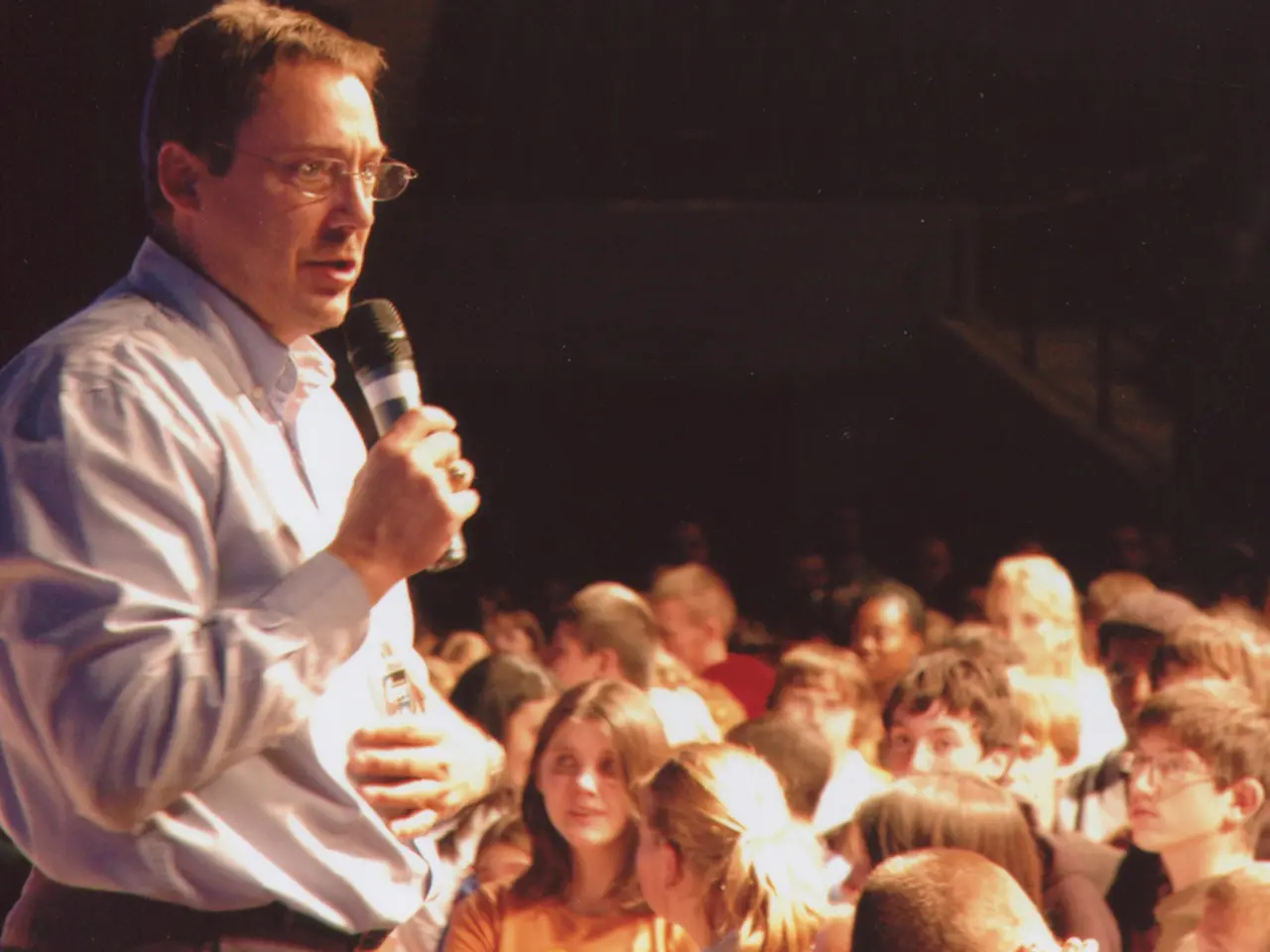Amplifying Dialogue: The Pivotal Impact of Child Speech Specialists
In the world of child development, pediatric speech therapists play a pivotal role in addressing speech and language delays. Their key responsibilities include evaluating and assessing children with developmental needs, providing individualised therapy plans, and collaborating with families and multidisciplinary teams.
These dedicated professionals work closely with children from infancy through adolescence, supporting and enhancing speech, language, and communication skills within the child's natural environment. Their interventions focus on preventing, diagnosing, and treating a variety of speech and language disorders, often incorporating the family’s routines and contexts to maximise relevance and effectiveness.
Pediatric speech therapists conduct comprehensive screenings and assessments to diagnose speech and language delays or disorders. Based on these findings, they develop and implement customised treatment plans adapted to the child's unique needs and developmental level. Direct therapy sessions are aimed at improving speech articulation, language comprehension, expressive language, social communication, and related skills.
Collaboration is a cornerstone of their work. They regularly collaborate with families, caregivers, educators, and other health professionals through meetings such as Individualized Education Program (IEP) or Individual Family Service Plan (IFSP) meetings to ensure a holistic approach.
To deliver therapy in natural settings—like the child’s home, daycare, or community environments—pediatric speech therapists promote the generalisation of skills. They also supervise support staff such as Speech-Language Pathology Assistants (SLPAs) and ensure clinical oversight.
Flexibility is another key aspect of their work. They often schedule sessions, including evenings or weekends, to meet family needs.
Pediatric speech therapists also address psychological speech constraints, aiming to help children overcome barriers to effective communication. They tailor their approach to children of all ages and stages of growth, offering essential assistance to families, helping children tap into their maximum communicative potential.
It is important to note that speech disorders can impact a child's social and self-confidence levels. Early detection of speech and language delay by pediatric speech therapists allows for early intervention, strengthening communicative competence and overall development.
In today's technological age, pediatric speech therapists make use of technological developments to provide assistive devices and programs for enhancement of speech or alternative forms of expression for children with speech impairment. They continuously work on professional growth to stay updated on the latest studies, findings, and standards of care.
Recognition and affirmation of neurodiversity make the services of pediatric speech therapists increasingly essential for providing communicative access channels for all children. They teach family members and caregivers how to aid the child's communicative skills at home, and they consider the psychological and emotional dimensions of speech disorders.
The therapy environment provided by child speech therapists is educational, comfortable, and accommodating, promoting learning and reducing anxiety. In summary, pediatric speech therapists serve as evaluators, diagnosticians, therapists, family educators, and team collaborators, all directed toward addressing speech and language delays through tailored, evidence-based interventions that integrate with the child's daily life.
[1] American Speech-Language-Hearing Association (ASHA). (2021). What is Speech-Language Pathology? Retrieved from https://www.asha.org/public/ [2] Pediatric Speech-Language Pathology. (2021). Retrieved from https://www.asha.org/Practice-Portal/Clinical-Topics/Pediatric-Speech-Language-Pathology/ [3] National Association of Speech-Language and Hearing Centers (NASLHC). (2021). What is a Speech-Language Pathologist? Retrieved from https://www.naslhc.org/resources/what-is-a-speech-language-pathologist/ [4] American Speech-Language-Hearing Foundation (ASHFoundation). (2021). Pediatric Speech-Language Pathology. Retrieved from https://www.ashafoundation.org/our-programs/pediatric-speech-language-pathology/ [5] American Speech-Language-Hearing Association (ASHA). (2021). Pediatric Speech-Language Pathology: Scope of Practice. Retrieved from https://www.asha.org/Practice-Portal/Clinical-Topics/Pediatric-Speech-Language-Pathology/Scope-of-Practice/
- In addition to their work in child development, pediatric speech therapists can contribute significantly to health-and-wellness and personal-growth by addressing speech and language delays that could impact a child's mental-health and overall self-confidence.
- As education-and-self-development proponents, pediatric speech therapists modernise their skills-training by employing technologies for assistive devices and programs, thereby providing enhanced opportunities for fitness-and-exercise in the form of alternative forms of expression for children with speech impairments.
- During career-development stages, pediatric speech therapists rely on resources such as the American Speech-Language-Hearing Association (ASHA), National Association of Speech-Language and Hearing Centers (NASLHC), and American Speech-Language-Hearing Foundation (ASHFoundation) for further learning on the latest studies, findings, and standards of care within their field.
- Job-search efforts of pediatric speech therapists typically involve collaboration with experts from various disciplines and support staff like Speech-Language Pathology Assistants (SLPAs) as they prioritize a holistic, integrated approach to mental-health, health-and-wellness, and fitness-and-exercise concerns in their clinical practice.
- By integrating family routines and contexts, adhering to evidence-based practices, and teaching communicative therapies across natural settings, pediatric speech therapists promote learning and personal-growth for children, caregivers, and families alike, thereby supporting their communication needs while advocating for education-and-self-development, mental-health, and community engagement.




